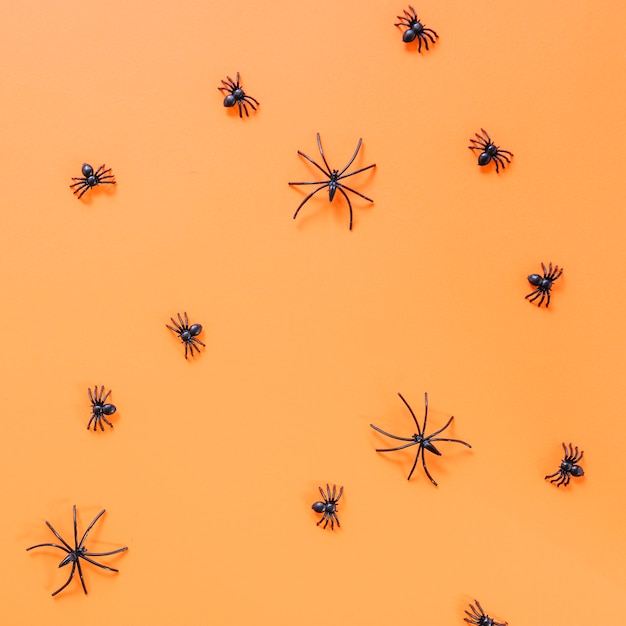Fascinating Facts about Spiders

Spiders have been around for over 400 million years.
Female spiders are generally larger than males.
There are over 48,000 known species of spiders.
Spiders are found on every continent except Antarctica.
Some spiders can survive for months without food.
Spiders are not insects, they are arachnids.
The largest spider in the world is the Goliath bird-eater.
Spiders can produce silk that is stronger than steel of the same thickness.
Spiders use different types of silk for different purposes, such as building webs or catching prey.
Spiders have eight legs and up to eight eyes, but not all species have good eyesight.
Spider silk is incredibly flexible and can stretch up to 30% of its original length.
Some spiders have an amazing ability to camouflage themselves, allowing them to blend in with their surroundings.
Spiders have a specialized mechanism for digesting their food outside of their bodies.
One species of spider, the black widow, has a venom that is 15 times stronger than a rattlesnake’s.
Spiders play an important role in the ecosystem by controlling insect populations.
Some spiders are known to exhibit social behaviors, living in colonies or assisting each other in hunting.
Spider silk has unique properties that make it valuable for medical purposes, such as sutures and artificial ligaments.
The smallest known spider is the Patu digua, which measures only 0.37 mm in length.
Fascinating Facts about Spiders part 2
Male spiders often perform elaborate courtship rituals to attract females.
Spiders molt, shedding their exoskeletons to grow larger.
Spiders can survive in extreme environments, including deserts and Arctic regions.
The redback spider’s venom is neurotoxic, causing muscle paralysis and potentially death.
Spiders have tiny hairs on their legs called setae that help them detect vibrations and navigate their surroundings.
Spiders have been the subject of many myths and legends throughout history.
The orb-weaver spider creates intricate geometric webs to catch prey.
Some spiders, like the trapdoor spider, create burrows and wait for their prey to come to them.
The Brazilian wandering spider is considered the most venomous spider in the world.
Spiders can regenerate lost legs or even parts of their bodies.
Many spider species exhibit maternal care, with females guarding their eggs and spiderlings.
The silk of golden orb-weaver spiders appears golden in sunlight, giving them their name.
Some spiders are expert jumpers, able to leap many times their own body length.
Certain species of spiders create decoys to confuse and deter predators.
Spiders can be found in a wide variety of colors and patterns, including vibrant blues, yellows, and reds.
Some spiders, like the wolf spider, don’t build webs but instead actively hunt for their prey.
Spider silk has been used by humans throughout history for various purposes, including as fishing nets and musical instrument strings.
Orb-weaver spiders are known for their perfectly circular webs.
Spiders are highly adaptable creatures, capable of thriving in different habitats and climates.
Many spider species are kept as pets, with tarantulas being a popular choice.
The silk of spiders is incredibly lightweight, allowing them to float on air currents.
Spiders have an internal hydraulic system that helps them move their legs and extend their fangs.
Some spiders, like the net-casting spider, construct specialized structures to catch their prey rather than traditional webs.
Spider venom has potential medical applications, such as treating chronic pain.
The venom of the black widow spider affects the nervous system, causing muscle spasms and intense pain.
Some species of spiders, like the fishing spider, can walk on water due to the surface tension.
The eyes of most spiders are unable to see colors, but they are sensitive to ultraviolet light.

